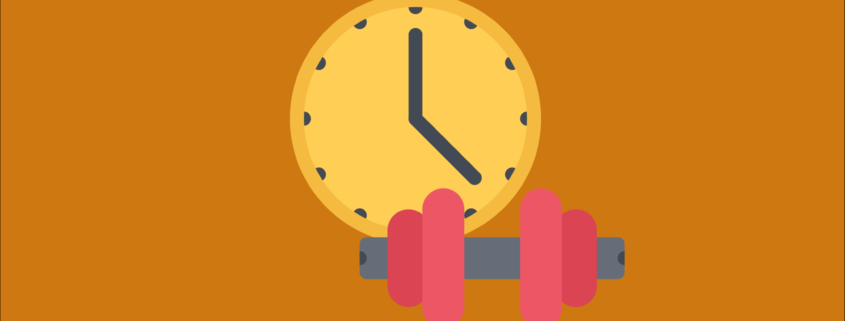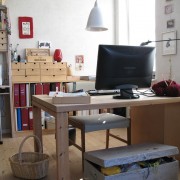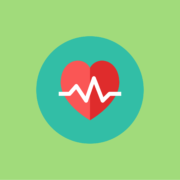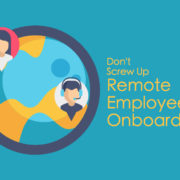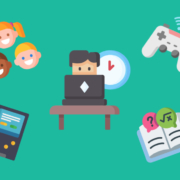Healthy Working From Home: Part 1
Working from home can be a fantastic benefit. You avoid stressful commutes. There’s no need to pack a lunch or get all dressed up. For that matter, you really don’t even need to change out of your pajamas. You can just roll out of bed and get to work.
However, the convenience of working at home can also lead to some convenient bad habits. Those bad habits can negatively affect your physical and mental fitness. Fortunately, you can keep bad habits at bay by anticipating them in advance and developing a plan to avoid them.
Working From Home | Bad Habits That Affect Your Physical Fitness
Most of the time poor fitness is due to poor choices. We all have the opportunity each day to make positive or negative choices for our health. While the choices available to some will vary, the following are the ones that I have encountered as I’ve worked remotely at home.
You’re Not Moving
Your home is comfortable. Your bathroom and fridge are nearby. You have a dedicated office space. Everything is at your fingertips. All of this helps you complete your work efficiently at home. However your super work efficiency can also translate into inefficient physical fitness.
I occasionally use a FitBit to track my movement at home. On some days, I log only 700 steps. Those are bad days. My back becomes stiff. My eyes are strained. And I’m exhausted at the end of my day–even though, physically, I’ve done very little.
To address this challenge, I schedule “active breaks” throughout my day that accompany other required movements. Here’s an example:
- Bathroom break? Complete ten push-ups as I return to my office.
- Just completed a task on my checklist? My reward is 10 “mountain climbers”.
- Thirsty? Do some light stretching and arm rolls.
These active breaks–for the most part– are quick and easy. Along with these active breaks, I plan more intense exercise at the beginning and middle of my day.
- Breakfast? Walk 15 minutes around the neighborhood.
- Lunch? Run 2-3 miles, or spend 45 minutes in the gym.
Scheduling workouts for the morning and mid-day provide you with energy for the few hours that follow and allow you to relax at the end of your day–no pressure to go to a crowded gym after work, you earned some couch time.
You’re Not Clean
As mentioned before, working from home makes it tempting to avoid “getting ready for work”. It’s just you in that house, so who cares whether you shower, change your clothes, brush your teeth, or otherwise attend to your hygiene?
Well, you should care. Good hygiene is important not just for how people see and perceive you, but for how you see and perceive yourself. And although you might not face the results (or embarrassment) of poor hygiene on one particular day at home, those days will add up.
Fortunately, avoiding this bad habit is pretty straightforward. Just get ready for work in the morning as if you are going into the office. This means getting up, showering, dressing, and “leaving the house” at the same time each day. I like to listen to the radio for 15 – 20 minutes before “leaving” and “arriving” at work.
You’re Not Eating Well
This kind of goes along with bad hygiene. When you’re at home, you have a lot of freedom and privacy to structure your time however you like. This is a good thing when used wisely, however it can very easily become a health liability.
For instance, working from home affords you the opportunity to prepare and eat whatever you want. There are no challenges associated with packing, refrigerating or reheating your meals. You can cook up a strong smelling meal and eat at your desk without fearing the ire of your coworkers. However, this freedom may also open the door for some bad habits like:
- Skipping Meals: While you might view this as being more productive, becoming overly focused or immersed in your work and forgetting to eat can drain you of energy. You may be working more, but the quality of your work–both the product and your experience–will be poor.
- Bad Snacking: Failing to set aside time to eat well, and instead snacking throughout the day, can be dangerous. A bag of tortilla chips can disappear over the course of an afternoon, and man (or woman) cannot live on tortilla chips alone. Healthy snacks between meals are fine, but they shouldn’t substitute for well-balanced meals that power you through the day.
It’s tempting to avoid structured breaks for breakfast and lunch, but by respecting and planning for mealtimes you will bring more energy and focus to your work.
You’re Not Sitting Correctly
That couch looks comfortable. Real comfortable. You could probably lay down on it, place your laptop on your stomach, and…STOP!
Your eyes will be too far from the screen, forcing you to lean forward, which will likely result in a rounded back and hunched shoulders. Or the screen will be too close, scarring your retinas, forcing you to bend your neck, arms, and wrists in a weird way. All of that nonsense is a recipe for pain and discomfort. Not to mention, your laptop will be gasping for air as it burns your stomach. Couches are meant for lounging, not working.
Office furniture has come a long way. Most chairs have several adjustment options and boast “enhanced ergonomic designs.” Although these aren’t cheap, or as comfortable as lounging on that inviting couch, investing in one will save you aches and pains in your back, neck, shoulders, eyes…basically your whole body.
Not only do armchairs, couches, and patio chairs lack the proper support for your work, they put you in the wrong mindset for work. Mixing a recreational space with a workspace introduces the temptation to relax and indulge when you should be focused on your work. So the way you choose to sit (or stand) can affect a lot more than just your comfort; it can negatively influence your entire work experience.
Working From Home | Plan Healthy Habits
Exercise, hygiene, diet, and posture are four key areas of physical health that you must maintain when working at home. Unfortunately, the comforts that are inherent in your home can make it tempting to neglect your physical health. In this sense, some of the benefits that come with working at home can actually be liabilities.
To resist the temptations that lead to bad habits and poor health, it helps to set goals for health and work, and then structure your workday accordingly. This can be done using an app such as “Balanced”–which has tons of capabilities–or simply use your current calendar program to schedule your health activities. Regardless of how you approach your planning, it’s important to document and track it as you begin. Bad habits are hard to break, and good habits take time and accountability to develop.
ExactHire provides paperless hiring software that makes it easier for teams to complete their work from anywhere. Our applicant tracking software and employee onboarding software provide HR teams with the tools they need to communicate and manage hiring processes effectively.

